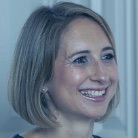
Structuring your consulting business for success
Yesterday evening was our second event in lockdown. We designed the event to simulate, as much as possible, the face to face event we couldn’t have. Our members networked before the main presentations, as if they were at a physical event.
In small groups they discussed complimentary services, similar challenges they are facing and common sector or client interests. Within 45 minutes multiple new connections, synergies and opportunities for partnering were identified, which is what the network is all about.
For the main presentations, our members were joined by several non-members who took the one-off opportunity to find out what our events are like for free.
Considered organisational design
In an agenda packed full of actionable advice and insight, Deri Hughes, Managing Director of Honeycomb PS, started us off by talking through the 10 key principles behind the design of your organisation that will help you achieve your ambitions and your strategy. He followed this with an explanation of the four steps necessary to take your consulting business from ambition to optimum organisational design, culminating with how you will bring it to life. “Remember, this is not static,” emphasised Deri. “You need to design it for the business you’re trying to create.”
Deri shared a specific case study to illustrate the detail behind the process. He described how a professional services firm can think about identifying its ambition, defining its strategy and working through its capabilities to create an organisational structure that makes those capabilities a priority, and establishing how to use them. Deri also included helpful advice about what to outsource and how to do it effectively. “This means recognising the critical capabilities that your business needs to be brilliant,” finished Deri, “and the drivers behind how you aspire to differentiate yourselves and deliver value to your clients.”
The board – a no brainer
Dom Moorhouse, one of our Expert Advisors, then explored why having a board is so fundamental to achieving business success.
Using his own experiences growing Moorhouse Consulting, Dom explained many of the practical benefits of having a board, such as making the distinction between working on the business instead of in it. Dom added, “For me, the value of the board, and particularly the external advisors, was that we could move at a faster pace. And if we put well chosen externals on our shoulders, they could point out the occasional bear trap we were about to step into.”
Dom advocated the behaviours expected of a company board to ensure agitated debate and challenge. “Surround yourself with people who will push back against your plans with calm logic and fact,” he said. “But, once a conclusion is reached, as a unit you collectively leave that room with absolute alignment to your decision.”
How leverage impacts your structure
Dom then went on to explain how owners can work out the best leverage ratio for their consulting business. “As we grew Moorhouse, economically we sought to make our firm as highly leveraged as realistic delegation would allow for – but no more,” he said.
The dream management team
Finally, Caroline Boston, Managing Director at New Minds, shared the what, who and how of building out your management team.
“Your management team will end up working on the things beyond where you add value; where you’re not an expert,” said Caroline. “It’s common for founders to hold on to things they like or to do things they’ve always done. Consider if there’s someone else better to take on that responsibility.”
Caroline also explained the significance of bringing in people who exhibit core leadership capabilities and can make a diverse contribution – ‘new minds’ that offer different perspectives on the challenges the founders are facing.
Then she looked at the composition of the management team – what roles to have in it. “There’s no one answer,” she said, as she went through some example management team structures, advocating the circumstances in which each model might work best, as well as their respective pitfalls.
Caroline concluded by walking through a comprehensive work-flow of items to consider and actions to undertake, all of which our event attendees could take away with them to ensure they build the right management team for their business. She finished with: “any decisions about building out your management team have to be taken in the context of your broader organisational plan and strategy.”
Thank you to everyone who joined us, to our sponsors and supporters, and to our hosts:
Deri Hughes, from Honeycomb PS
Dom Moorhouse, from MethodGrid
Caroline Boston, from New Minds.
If you would like to attend a Consultancy Growth Network event as a non-member, please visit our upcoming events page and contact George at info@consultancygrowthnetwork.com to register your interest.
Article | Network news

Written by
Ali El Moghraby
Head of Marketing
The Consultancy Growth Network